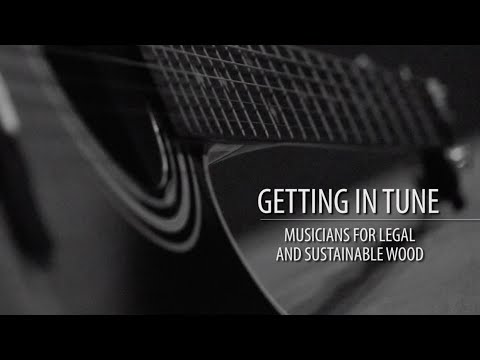Where Does Your Wood Come From?
What is illegal logging? It is when wood is cut, processed, and traded in violation of a state or country’s law or a violation of international laws. According to REVERB, 30% of global wood products trade violates these rules.
Why is illegal logging a significant issue for musicians? Musicians all over the world are unknowingly supporting illegal logging when purchasing instruments. Illegal logging gathers wood from the poorest regions of the world to create guitars, violins, and pianos. Illegal logging takes away the resources of their land and wipes out their forest. Not only does illegal logging devastate indigenous countries, but also puts a negative impact on, the environment, economy, and musical instruments.
Illegal logging is destroying habitat and leading to the hunting of endangered wildlife, threatening the survival of lemurs, tigers, pandas, gorillas, elephants, jaguars, and other animals.
The big issue that illegal logging operations brings is that it tends to be controlled by organized crime that can potentially bring violence against indigenous groups and forest-dependent communities. Nearly half of all rainforest deforestation is the result of illegal logging, when trees are stolen from national parks or other protected areas. Illegal logging is a major contributor to climate change, and the stopping illegal logging will help reduce greenhouse gas emissions.
Illegal loggers do not pay for permits, evade taxes, and pay little for labor, driving down the price for wood. Business cannot compete, leading to job losses in US forests products industry. Developing countries lost estimated $10 billion to illegal logging. These communities see little to none of the massive profits brought by valuable wood species in global markets.
Widespread illegal logging is placing at risk the wood in our musical instruments. Illegal logging has been the critical force in driving many species of tonewoods such as Brazilian Rosewood to the brinks of extinction. Instruments made out of tone woods are violins, pianos and guitars. Many of the w

oods that we use in producing great sounding musical instruments will be extinct if we do not ensure sustainable sourcing of wood products used in guitars and other musical instruments.
REVERB’s goal through the “NO MORE BLOOD CAMPAIGN” is to eliminate all trade in illegally logged timber and forest products. REVERB created a Musician’s Pledge where musician’s make the commitment to ask their local guitar shops where their wood is coming from. The Musician’s Pledge is asking musicians and anyone involved in sourcing and crafting and to get involved. The Musician’s Pledge states, “We will not buy a new instrument without asking where wood comes from and if it was harvested legally and sustainability.” Over 30 musicians have signed this petition.
In 2008, U.S. global leadership addressed the issue of illegal logging. The Congress addressed this issue by passing a bi-partisan support called U.S. Lacey Act. This law was passed to prohibit the import of wood into U.S. that was unlawfully exported under another country’s status. Critics have argued that it is unreasonable for American companies’ practices to be dictated by the laws of other countries. On May 8, 2012, REVERB founder Adam Gardner testified to Congress in opposition to proposed bills that weakened the Lacey Act. REVERB’s ability to gather major musicians in an authoritative voice convinced the Congress to keep Lacey Act strong. According to REVERB, the Lacey Act has contributed to 22% decline in illegal logging around the world and saved billion tons of carbon from being emitted today. In late 2014, U.S. Forest Service scientists published an economic analysis showing that the Lacey Act had been successful in reducing U.S. imports of illegally logged wood since 2008.
The “NO MORE BLOOD CAMPAIGN,” Musicians Pledge, and Lacey Act are running strong this 2015. How can UWT students get involved? The next time you purchase an instrument, ask your local music shop where the wood is coming from. In doing this, you are creating awareness of the issues that illegal wood logging brings and you are becoming the solution instead of the problem.







